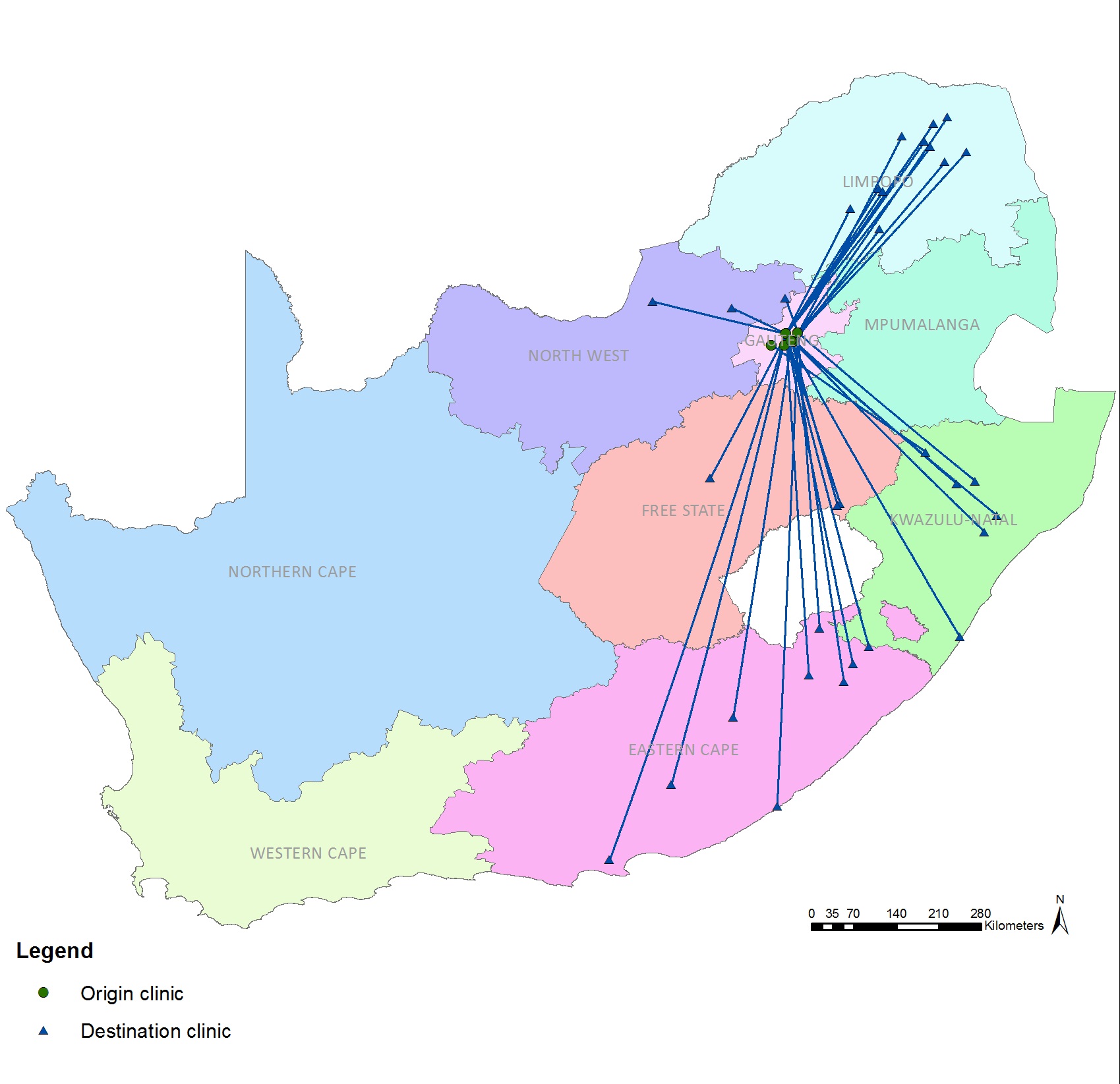HIV and population mobility in South Africa
Population mobility and engagement in HIV care
Director: Kate Clouse, School of Nursing
About
South Africa is home to more people living with HIV than any other country as well as the world’s largest antiretroviral therapy (ART) program. The national treatment program is under tremendous pressure to ensure continuous, lifelong care to the four million adults and children on treatment. One group at high risk of dropping out of HIV care is postpartum women. South Africa has a highly mobile population, with a pattern of frequent cycling between urban and rural areas due to employment and family obligations.
Smartphone usage and mobility
Research Goal: Dr. Clouse’s work has shown that recently postpartum women are highly mobile, often returning to rural homes for months at a time, which may interrupt HIV care for the mother and infant. However, characteristics of this mobility still are poorly understand.
Methods: Mobile phone usage is ubiquitous and growing in South Africa. Through a Development Core Award from the TN CFAR, Dr. Clouse and colleagues from the University of Cape Town and Vanderbilt University Medical Center developed CareConekta, a smartphone app that uses the phone’s GPS to record patient locations to prospectively characterize mobility and allow real-time intervention. CareConekta is the first smartphone app to track mobility for improving health outcomes. Through additional funding from the National Institutes of Health, this innovative project will generate large volumes of spatial data and will require the advanced GIS analytic capabilities. The concepts demonstrated through this work can apply to mobile populations in any geographic area and across disciplines.
